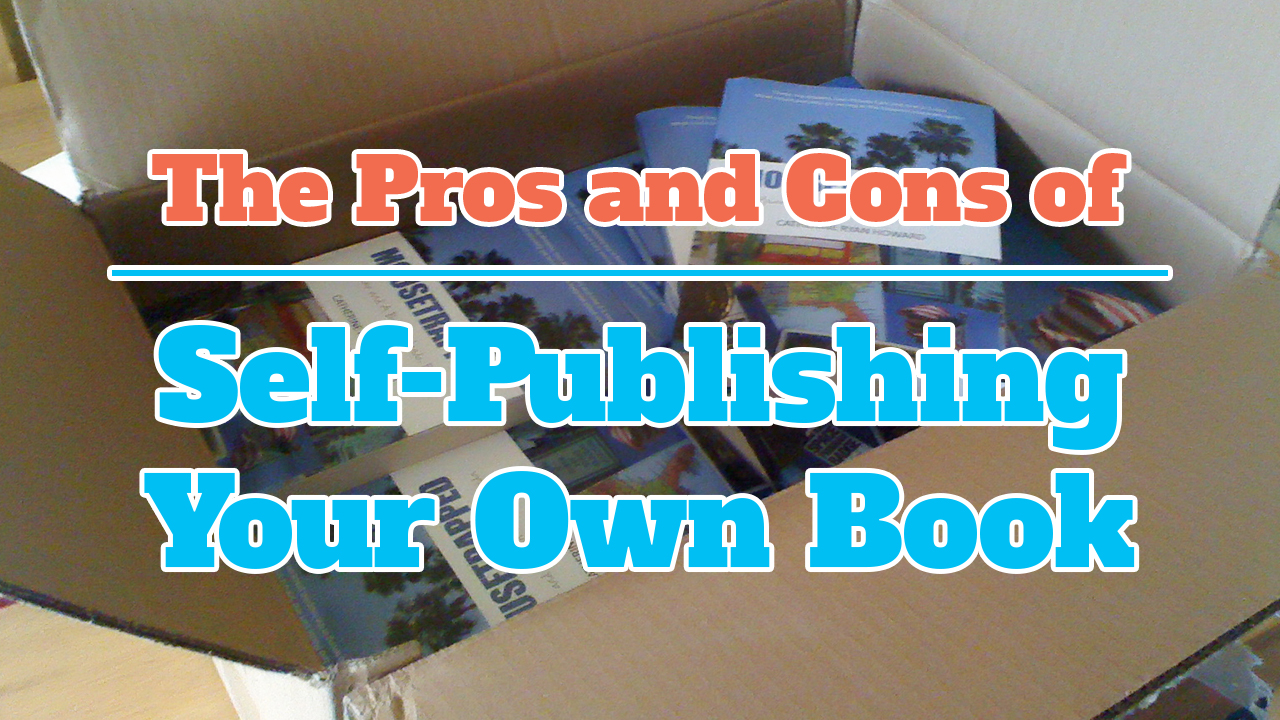Are you an author who has a book that you would like to see published?
If you are, you should know that you do have a number of different options. While the most common approach taken involves relying on a third party publishing house, you do also have the option of self-publishing your own book.
When an author makes the decision to self-publish a book, he or she has complete control over the whole process. In fact, that is just one of the many pros or plus sides to self-publishing, as many authors like having complete control over their works of art.
As for the responsibility of an author in terms of self-publishing, an author must write the book, edit it, find a company to manufacturer the printed book, and sell it. Although the process does seem relatively easy to most, it is important to remember that there are a number of pros and cons to self-publishing.
As it was previously stated, a self-publisher is responsible for the sale of their book. For many, this is a difficult process. When a third party publishing house is used, they take on most of the work associated with selling a book, such as marketing. This is not how self-publishing works.
Many self-publishers set up websites where they list their books available for sale. Even then, however, that website must be marketed so that visitors will find it. Self-publishers also have the option of approach retailers, including bookstores, hoping to get their books available for sale locally.
Another con or downside to self-publishing is the cost. Technically, you could say that even when using a third party publishing house, you still pay for the cost of getting your book published.
This is because your publisher does take a fee out of the amount of money that you are paid; however, many authors donít even take this cut into consideration. Even though it will cost money to have your book transformed into print, there are steps that you can take to reduce the cost.
The most common approach involves having your book printed on-demand, instead of having books on hand.
As previously stated, some self-publishers find it difficult to sell their books. Yes, this process can be difficult, but many other self-published authors have seen success. When you put the proper amount of time, research, and energy into selling a self-published book, you stand the most chance of making the biggest profit.
This is because, aside from the cost of your expenses, you are able to retain all of your profits. There is no one else that must share your profits unless of course, you decide to hire help.
Another pro or plus side to self-publishing is the fact that unknown authors are given the opportunity to shine. Some of the best selling books today are written by authors who already have an established history or name.
In fact, unless you have an absolutely amazing book or a well-known name, there is a good chance that many publishing companies will not want to take a chance on you. This doesnít mean that your book is a poorly written one or that it has a bad storyline. It just means that the publishing market is a tough one.
One of the biggest signs that self-publishing may be right for you if you believe that you have a book that will sell, but you still receive multiple rejection letters from well-known publishing houses.
Self-publishing is also an ideal approach for authors who write books that will sell, but books that only have a limited targeted marketed. For example, if you are interested in writing a book on your city or town, your targeted market may be quite small and publishers may not want to take a chance with that.
Since there are a number of pros and cons to self-publishing, you should take the time to decide if self-publishing is right for you. Additional research can help you determine if self-publishing is truly your best option.



.png)
